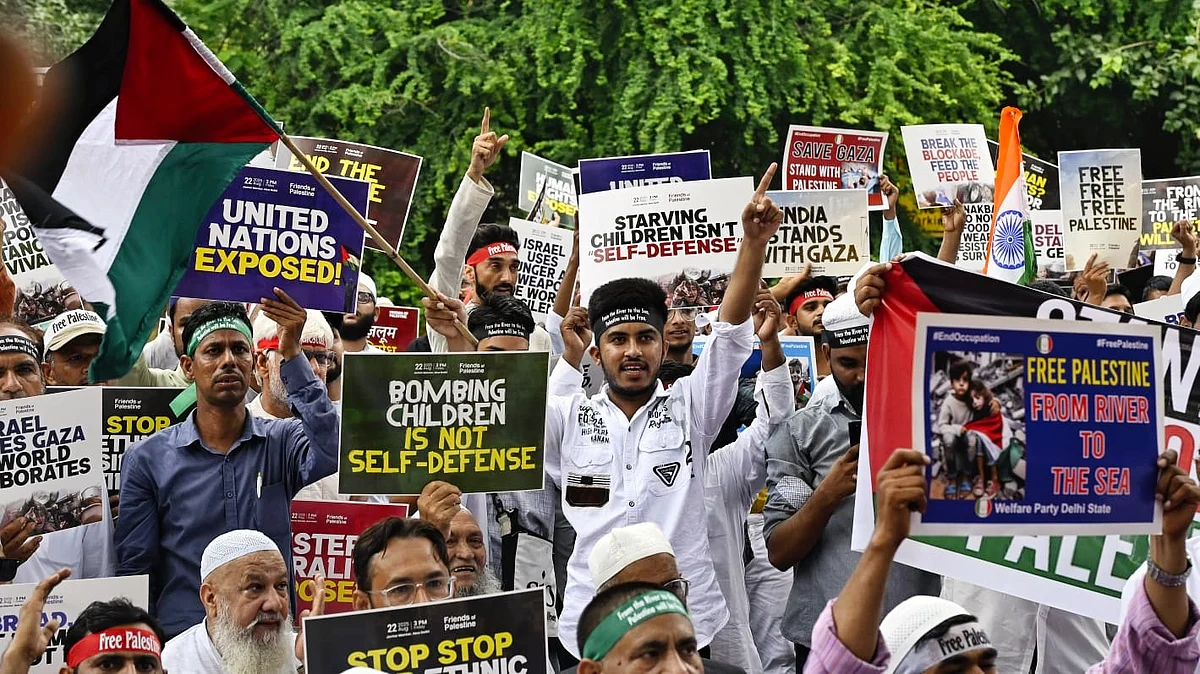Israel's defence minister says Gaza City could be destroyed
Remark comes as Israel readies an expanded offensive, despite warnings by humanitarian agencies, international leaders and its own citizens

Israel’s defence minister on Friday issued a threat that Gaza City could be obliterated unless Hamas surrenders to Israel’s terms — a declaration that underlines how the government appears more committed to collective punishment than to any serious pursuit of peace.
The pronouncement comes as Israel readies an expanded offensive, even as humanitarian agencies, international leaders and its own citizens warn that such a move risks spiralling into outright catastrophe.
A day after Prime Minister Benjamin Netanyahu promised to greenlight a large-scale assault, defence minister Israel Katz boasted that Gaza’s largest city could “turn into Rafah and Beit Hanoun”, both already reduced to ruins. On social media, he warned: “The gates of hell will soon open on the heads of Hamas’ murderers and rapists in Gaza — until they agree to Israel’s conditions for ending the war.”
Those conditions — the unconditional release of hostages and Hamas’ disarmament — are presented as non-negotiable. Yet Hamas has repeatedly said it would trade captives for an end to the war, a proposal that Israel rejects outright. The demand for unilateral disarmament, absent the recognition of Palestinian statehood, is less a realistic precondition than a guarantee of endless conflict.
The planned offensive is aimed at Hamas’ headquarters in Gaza City, where Israel claims an elaborate tunnel network exists. But the same city is also home to hundreds of thousands of civilians — families who have already been displaced multiple times and who have nowhere safe left to flee.
Hospitals are collapsing under shortages, evacuation corridors are meaningless when every corner of Gaza is under bombardment, and aid groups insist that moving patients southwards is “simply impossible”. In reality, Israel’s rhetoric of “evacuation” has become little more than a grotesque euphemism for forced displacement.
Meanwhile, Hamas this week announced it had accepted an Arab-mediated ceasefire proposal involving phased exchanges of hostages and prisoners and a staged withdrawal of Israeli forces.
While such deals have faltered before, Israel’s leadership refuses to even entertain the possibility, constrained by Netanyahu’s fragile coalition and his reliance on far-right allies who openly oppose any truce. The result is paralysis dressed up as strength — a refusal to negotiate masquerading as resolve.
For Netanyahu, the assault is framed as the only way to free hostages. “These two things — defeating Hamas and releasing all our hostages — go hand in hand,” he declared on Thursday.
Yet, this claim rings hollow. Every military escalation to date has left hostages more endangered, not less, and it is precisely this fear that drives the protests now roiling Israel’s streets. Families of captives, joined by thousands of ordinary citizens, are demanding that the government strike a deal rather than sacrifice lives for political posturing.
These protests reflect a deeper crisis of legitimacy. Netanyahu’s government insists it is waging a war of necessity, yet its actions increasingly appear designed to prolong conflict rather than resolve it. International patience is thinning, domestic outrage is mounting, and still the leadership clings to a strategy of destruction that promises only more rubble, more death and more despair.
Now, Israel’s defiance is colliding with a shifting global mood. European nations including Spain, Ireland and Norway have formally recognised a Palestinian state, with others signalling they may follow. UN agencies and humanitarian organisations issue daily condemnations of Israel’s conduct, while images of flattened cities and starving children dominate international headlines. What was once framed as Israel’s “war on terror” is increasingly viewed as an assault on a captive population.
The convergence of domestic protest and international censure has left Israel isolated in a way not seen for decades. The government’s insistence that destroying Gaza is the only route to security is convincing fewer and fewer allies, while galvanising a global movement that views Palestinian statehood not as a distant aspiration but as an urgent necessity.
The question is no longer whether Gaza City will survive Israel’s wrath, but whether Israel itself can survive the moral, political and diplomatic cost of pursuing this path.
Follow us on: Facebook, Twitter, Google News, Instagram
Join our official telegram channel (@nationalherald) and stay updated with the latest headlines
